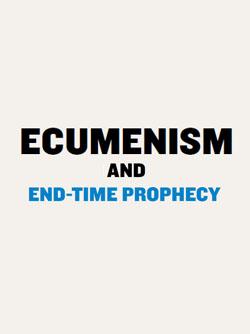Make a Commitment!
We live in a world that offers us many choices. It can be very good to have at least a reasonable number of options, such as in the area of consumer goods where different products accommodate a wide variety of personal tastes. Not everyone wants the same car, so manufacturers let us choose among Camaros and Camrys, Priuses, Impalas and Volts, and many more. Some are quick to buy the latest iPhone, while others watch for the latest Android or Windows Phone release. Some want crunchy breakfast cereal; others want oatmeal. In practically every aspect of modern life, we have become conditioned to expect a wide variety of choices.
Because of this abundance of options, it can sometimes be difficult to settle on one choice. Forty years ago, in his groundbreaking work Future Shock, researcher Alvin Toffler described “overchoice,” also known as “choice overload.” For example, studies have found that when shoppers see 30 different laundry soaps on the supermarket shelf, they not only take longer to choose than when just three choices are available; they are more likely to choose none at all.
This may be a trivial problem when it involves laundry. But when it involves a commitment to career, marriage or even faith, the consequences can be far more serious.
Avoiding Commitments
One recent trend among college-age Americans is “stayover relationships,” in which couples spend three or more nights together each week while still having the option of going to their own homes (“Living together too much commitment for today’s couples,” USA Today, August 5, 2011). These couples want to “keep their options open” while enjoying the benefits of a relationship. “‘Many college-aged adults are students who will soon be facing a transition point in their lives,’ study author Tyler Jamison said. ‘Most students do not have a definite plan for where they will live or work after graduation, and stayovers are a way for couples to have comfort and convenience without the commitment of living together or having long-term plans.’”
A generation ago, many non-Christian young people saw “living together” as a way to avoid the commitment of marriage. Today, “stayovers” avoid even the minimal commitment of living together. Not only is this unbiblical; it typifies a trend in which the search for “comfort and convenience” actively prevents people from making important commitments.
What is behind this trend? Generation Next, a 2006 PBS documentary, suggests several factors: “Desire for adventure, career advancement and prolonged adolescence. Lack of commitment is also hitting religion—hard. Studies suggest that the iPod generation is choosing which aspects of the faith to adopt to create their own unique spiritual playlists” (Chuck Colson with Catherine Larson, “The Lost Art of Commitment” Christianity Today, August 4, 2010).
What about you? Do you want to be 30 years old, unmarried, and still living with your parents? Are you afraid of “launching” into adulthood? If not—if you want to get your adult years off to a healthy start—you need to learn how to make wise commitments, and to stick to them!
Some Hardship Is Unavoidable
A college friend of mine once observed, “Life is like a bowling ball; it’s hard!” Indeed, life often forces us to make choices that do not come easily. Yet, so much of the world around us—from developments in science to the latest consumer goods—seems to be devoted to making life as easy as it can be. Add to this the idyllic movie and television portrayal of young people somehow getting by in life while spending their days sitting around in the coffee shop drinking lattes for hours on end, and it is no wonder why so many hope to get by in life without ever doing hard things.
One problem with this mindset is that it is unrealistic, and it sets people up for disappointment when they discover that life really can be difficult. Yet by avoiding a hard choice, we really are still making a choice—a choice to stagnate, even a choice to fail.
Sooner or later, life forces every one of us to deal with real-world choices rarely depicted in breezy sitcoms. Challenged by illness, strained relationships or the death of loved ones, we must make important personal choices that will affect the rest of our lives. Other choices may involve education and career. In each of these areas, failing to commit to a wise course of action will not make the hard choice go away; it will simply guarantee a worse outcome than if a wise commitment had been made.
So, will you run away from the unpleasant realities of life? Or will you confront them and work your way through them? Facing life’s problems is hard enough when we take them on day by day. Making a long-term commitment to work through each challenge will help you gain the strength to succeed, and to lay the best possible foundation for success later in life.
Does making a commitment guarantee that each decision we make will turn out perfectly? Hardly. But it will help. And as we learn how to make good commitments, and become comfortable in keeping them, we will gain self-confidence and self-respect—as well as the respect of others who recognize our resolve.
A Key to Commitment
The Bible records that “great multitudes” followed Jesus Christ to various places, whether to hear His teachings, see miracles He performed—or simply to get a free meal. Jesus knew that not everyone was committed to “going the distance” with Him and doing what was required to become His true disciple. Once, He told a crowd, “If anyone comes to Me and does not hate [love less by comparison to Him] his father and mother, wife and children, brothers and sisters, yes, and his own life also, he cannot be My disciple. And whoever does not bear his cross and come after Me cannot be My disciple” (Luke 14:26–27).
Yes, Jesus demanded a certain level of personal commitment of His true followers. And He gave an example to illustrate what He meant by commitment. “For which of you, intending to build a tower, does not sit down first and count the cost, whether he has enough to finish it” (Luke 14:28).
Notice that Christ expects us to “count the cost”—to understand the consequences and what is required—before we enter into a commitment. This principle should apply to all our commitments, big or small. Yet, far too often, people rush into situations and end up with great heartache because this simple principle was not followed. How many lives are ruined on the one hand by the failure to make commitments, and on the other hand by the impulsive rush to make an unwise commitment?
You have probably heard the saying, “failure to plan is planning to fail.” So, look at your life, and see what is missing. Examine what needs to be done, and then commit to doing it. Then follow through with the commitment you make. Whether as a student, a future husband or wife, or as a Christian, following Christ’s example will not always be easy, but it will be impossible without commitment. So, count the cost, and then make a commitment!






